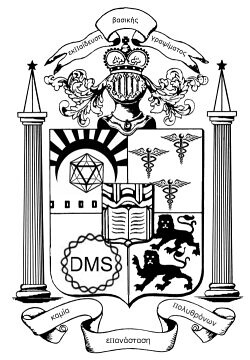And nothing has really gone on? The honest answer is yes. I am of the opinion that in order to write, you must have something you want to say. This is part of the reason I got out of writing as a field - I don't think that my ideas, in and of themselves, are of much originality or value. In my case, I've got nothing to push against.
The pressure of summer is basically gone. I no longer study every night. If I did, I would be so far on top of everything it would be ridiculous.* I try to amuse myself with pathology conferences or radiology visits, but scheduling for them is inconvenient given the amount of class I have. It's becoming obvious that I can improve my day immesurably by simply skipping the first lecture of any given day.
Why is the pressure of summer basically gone? It's simple. Anatomy and histology are two large concept areas where I had no previous knowledge. Zero. We receieved bone sets our first day, and I couldn't identify squat. Histology didn't start out as pinkish bluish ovals, it started out as 'can't focus on the image 'cause I don't know how to use a microscope.' Contrast that with physiology. Our med physio class is 100 'hours,' long, whereas my junior level physiology was 75 'hours' (Or 90 or 105, depending on how you want to count the lab) and taught on the same, if not a higher technical basis. The prof at Norbert, for instance, did us the courtesy of assuming we understood metastable kinetic states, and how they related to sodium channel opening (in a purely qualitative way, but still informative). For grad courses, Cell Biology and Proteins (my biochem course) are concepts I've heard before, just slightly embelished. Cell Death can surprise, like when we learned about mitochondrial calcium absorption, but it's more of an integrative class that stitches together what we already know than one which introduces big volumes of new data.
One might wonder why Physio is such a waste of time. Is it the variety of incoming preparations? My physio experience is certainly not representative, so this may have something to do with it. Is it the professors insistence on not telling us things, even in outline, that other people will teach us, and recapitulating how patch-clamp works 50 times? I'll give an example: Two weeks ago, we were lectured on the various membrane proteins involved in Long-QT syndrome, and then tested on what they were. I surveyed about 10 people in my class, including a few MSTPs, and no-one knew what QT referred to, or why it would be bad for it to be long.** It takes me about 5 minutes to explain this in simple terms any beginning med student can understand. Why don't the profs do this? Finally, the first years have a lot of other stuff to do. Physio has a rep for being an easy class where you just study the old tests, which is basically true. Our anatomy-heavy curriculum doesn't give it sufficient time to elaborate to the point where it would be revolutionary for me.
I guess I do have some stuff to say, though admittedly it is just dumb griping. We did get a lecture from a medical bigshot on how to reform our curriculum, so that will be a lot of fun if I ever do write about it.
* Why would being on top of everything be ridiculous? First, it would make classtime a complete waste. Second, I need to recouperate and save my powder for when it really counts. Third, I'm a gist kind of learner, sloppy intellect with a long memory for concepts. Hard work would just clean up the details, which would ultimately blur anyway.
** QT refers to a measurement done on EKG. It works like this, on EKG, each heartbeat has 3 big waves. The P wave is the electrical signal from the atria contracting and priming the heart. The QRS complex is 3 waves clustered together that represent the ventricles squeezing blood out into circulation. The T wave represents the ventricles relaxing. The QT interval is the amount of time (x-axis) between the beginning of the QRS complex and the end of the T wave, that is, how long the heart is contracted for. If this is too long, it means that the heart will still be contracting after all the blood has been squeezed out. It would be far more efficient to relax and let in the next round of blood. Failure to do so means that less blood gets pumped. This is 'bad.'
Subscribe to:
Post Comments (Atom)

1 comment:
Sadly enough, I knew what long-QT was. from bio12. sad state of things really.
Post a Comment